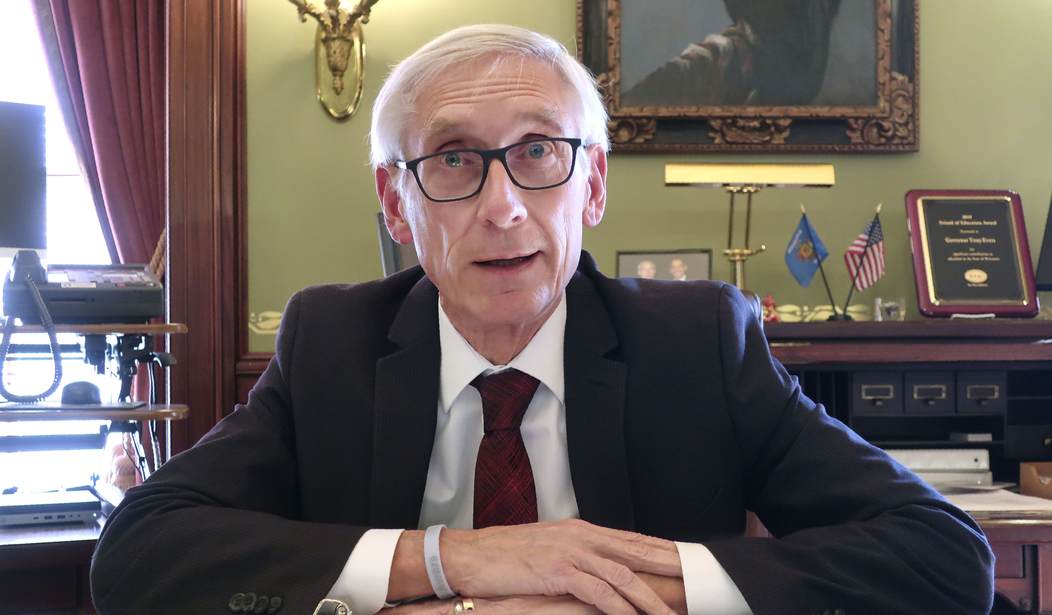As tens of thousands of Wisconsinites continue to wait for their unemployment benefits, we just learned that the state agency overseeing the program erroneously overpaid $21.2 million in benefits during the month of April alone. It’s an astounding illustration of the failure of leadership.
For countless Wisconsinites, "crisis" is the correct word to describe Wisconsin’s unemployment debacle. When a one-size-fits-all policy closed down the state’s economy in response to the coronavirus pandemic, a massive surge of unemployment claims became the most predictable outcome of that incredibly consequential decision.
From March 15 through July 7, nearly 730,000 applications were received by the Department of Workforce Development (DWD) and a total of nearly 4 million weekly claims filed. Of those, 529,000 weekly claims remained unpaid or in adjudication as of July 7.
Many people put out of work by the lockdown order but left without any income have contacted their legislators, desperate for help to pay their bills and avoid eviction or foreclosure.
My office and I have been helping hundreds of constituents, and most filed their first claim months ago. One constituent, Carol Glupker, has shared her story publicly. She says the financial stress of being reduced to having just a few dollars to her name and waiting three-plus months for answers from the DWD caused her blood pressure to spike. She spent some of the last few dollars she had left on blood pressure medication.
In a sign that the DWD’s problems aren’t technological but a basic problem of competence, she was recently denied Pandemic Unemployment Assistance (PUA) even though she provided a letter from her employer stating that she was laid off in the wake of COVID-19. Listen to Carol share her story on-air here.
Recommended
Jennifer Robertson, another constituent, also shared her story publicly after being forced to wait ten weeks after first applying. She was on the brink of losing everything she worked for her whole life when, days after she told her story on the radio, she finally received the payment she desperately needed.
Constituent after constituent tells us about their inability to reach the DWD by phone or email despite calling sometimes thousands of times or waiting on hold for hours. Some who do get through report being hung up on, while others have been able to schedule a call with an adjudicator who never calls. Others are given useless information instead of decisions about their long-delayed claims.
My staff and I remain amazed and heartened by the upbeat attitudes of those who contact us, despite many being on their last financial leg. This is not a partisan issue—every legislator, regardless of party, is experiencing the same influx. While our options as legislative offices are limited, we are doing everything we can to help every person who contacts us.
But in the end, the DWD is where the action happens. The department has talked about the steps it has taken with the goal of reducing wait times and eventually clearing the backlog by sometime in the fall: transferring some employees from other departments, hiring additional staff, and contracting with outside call centers.
Despite these steps, untold numbers of Wisconsinites remain in limbo. Legislative offices are now being told that the people we refer to the DWD can expect to wait up to five weeks, up from just days at the end of March—and that’s with the help of a State Senate office. Similarly, many PUA applicants have been left hanging since April 21, when Wisconsin began taking applications for the program aimed at those who don’t qualify for regular unemployment.
The Evers administration has been quick to offer excuses and pin the blame on its political opponents. Evers’ officials blame anti-fraud reforms passed by Republicans. They blame the U.S. Department of Labor. A particular focus of their finger-pointing is UI’s outdated computer programming language, COBOL.
Over a dozen states still use COBOL. One is Iowa, which managed to retool their outdated system and begin paying out PUA about a week sooner than Wisconsin. Yet Wisconsin’s DWD employed 1,609 full-time equivalent positions in 2019, while Iowa’s workforce development agency employed 718 the same year. Adjusted for population, Wisconsin has 1.2 DWD employees for every Iowa Workforce Development employee. We should be getting better results.
Meanwhile, Colorado recently launched a new program allowing callers to their UI program to have basic questions answered by a virtual agent. The same system can schedule a call with a human agent for more complex questions, streamlining the state’s UI call center operations. Colorado also uses COBOL. Why couldn’t a similar system be set up in Wisconsin?
Another option is utilizing the National Guard to help with the UI influx, as Washington state recently did.
UI call centers in other states are open six days a week. By comparison, Wisconsin's, for all practical purposes, is, shockingly, only open 2.5 days a week. Why? Because UI seekers can only call on certain days determined by the first letter of their last name. Instead of considering all these other options, the governor decided to change the behavior of those seeking assistance instead of seeking changes from his DWD.
No doubt COBOL is a hindrance, but it’s the reality that we have been handed. A true test of leadership is how well a leader can identify a priority, work around problems and think outside the box to make progress against a crisis. A strong leader understands where the buck stops.
Wisconsin’s ongoing unemployment crisis is a national embarrassment. It is very disappointing to see that this governor and his team have failed a key test of leadership while knowing that Wisconsinites are paying the price.
###
Senator Dale Kooyenga (R-Brookfield) represents Wisconsin’s 5th Senate District, covering the Milwaukee suburbs and portions of the City of Milwaukee.

























Join the conversation as a VIP Member